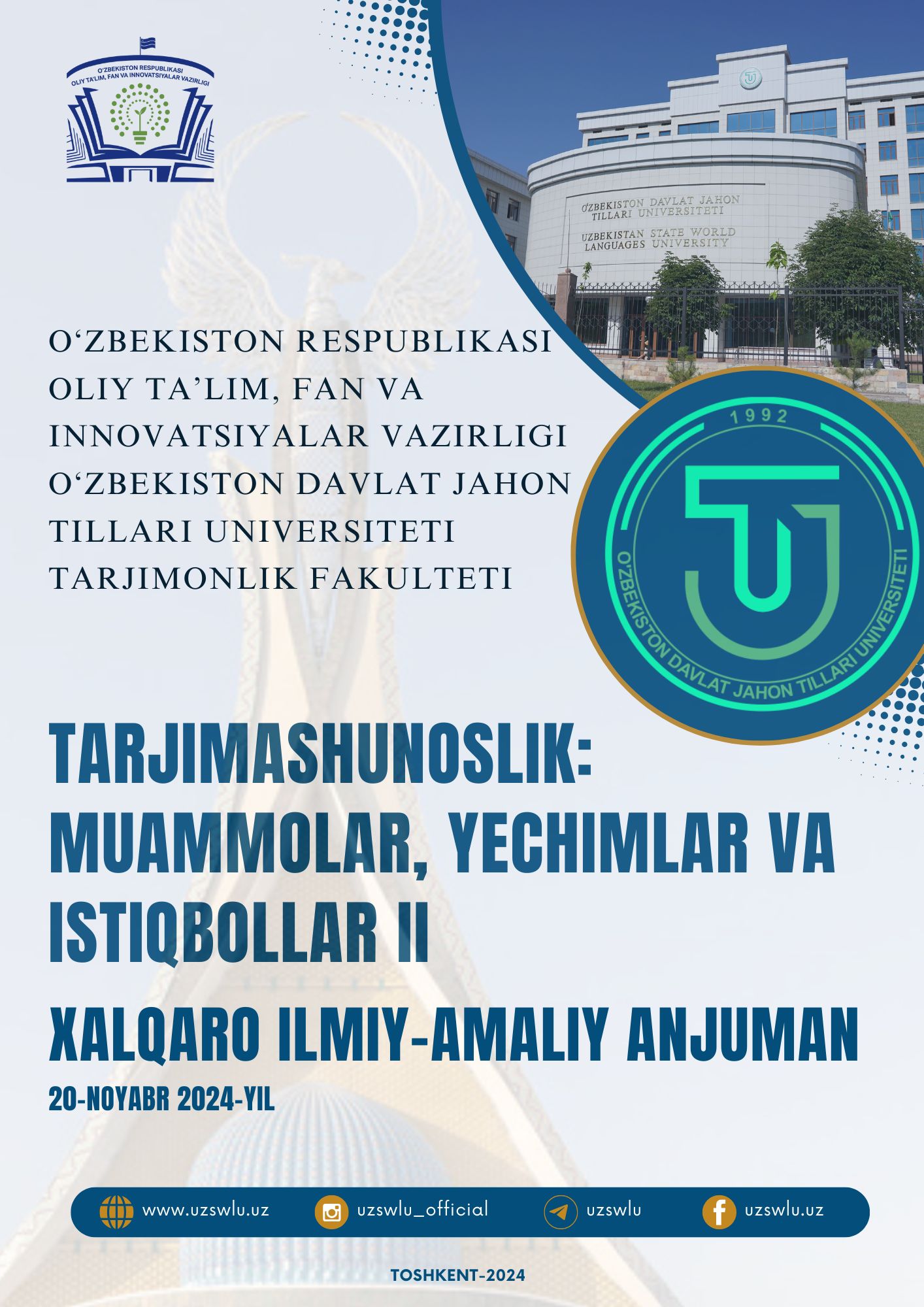DEVELOPMENT OF COMPETENCE IN TEACHING A SECOND FOREIGN LANGUAGE IN SCHOOLS IN GRADES 10-11
Kalit so‘zlar
Second foreign language, language competency development, 10 th and 11th grades, secondary school education, multilingualism, communicative approach, interactive teaching methods, student engagement, language learning strategiesAnnotasiya
This article focuses on the development of competencies in teaching a second foreign language to 10th- and 11th-grade students in secondary schools. In today’s globalized world, multilingualism is becoming increasingly important, and it is essential to prepare students to communicate effectively in multiple languages. The article explores modern teaching methods and strategies aimed at enhancing students' linguistic, communicative, and cultural competencies. Additionally, the challenges faced by teachers and students in mastering a second foreign language are discussed, along with solutions for improving teaching quality and student engagement. Particular attention is given to the role of interactive and communicative approaches in achieving better learning outcomes.
Foydalanilgan adabiyotlar ro‘yhati
Barrett, H. C. (2007). Researching Electronic Portfolios and Learner Engagement: The REFLECT Initiative. Journal of Adolescent & Adult Literacy, 50(6), 436-449.
Black, P., & Wiliam, D. (1998). Inside the Black Box: Raising Standards Through Classroom Assessment. Phi Delta Kappan, 80(2), 139-148.
Dochy, F., Segers, M., & Sluijsmans, D. (1999). The Use of Self-, Peer, and Co-assessment in Higher Education: A Review. Studies in Higher Education, 24(3), 331-350.
Fanning, R. M., & Gaba, D. M. (2007). The Role of Debriefing in Simulation-Based Learning. Simulation in Healthcare, 2(2), 115-125.
Jonsson, A., & Svingby, G. (2007). The Use of Scoring Rubrics: Reliability, Validity and Educational Consequences. Educational Research Review, 2(2), 130-144.
Johnson, D. W., & Johnson, R. T. (1999). Learning Together and Alone: Cooperative, Competitive, and Individualistic Learning. Allyn and Bacon.
Kolb, D. A. (1984). Experiential Learning: Experience as the Source of Learning and Development. Prentice-Hall.
Mulder, M. (2017). Competence-based Vocational and Professional Education: Bridging the Worlds of Work and Education. Springer.
Redecker, C., et al. (2012). The Future of Learning: Preparing for Change. European Commission Joint Research Centre.
Thomas, J. W. (2000). A Review of Research on Project-Based Learning. The Autodesk Foundation.
Wiggins, G. (1998). Educative Assessment: Designing Assessments to Inform and Improve Student Performance. Jossey-Bass.
Wolf, A. (2007). Competence-based Assessment. In Rethinking Assessment in Higher Education. Routledge.

